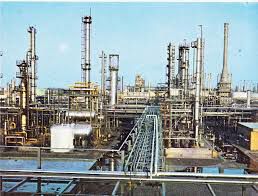Immediate Background to the Nationalisation of the Anglo-Iranian Oil Company’s Crisis: Britain and Iran

To protect her national interests, political influence and strategic interests, Great Britain needed to extend her influence beyond the boundaries of the United Kingdom. This, in previous centuries and to some degree in this century, has led her to seek direct or indirect domination of foreign lands. To begin with, the state’s need for expansion will be discussed.
The theory of state expansionism
The tendency to expand, on the principle of growth, may characterise all social organisms. This may also be put as the propensity of states to expand; that is to enlarge their physical selves, their territory, or their overseas interests, or their influence beyond their own boundaries. It is a characteristic which has played a dominant role in the history of international relations. ‘Every great country, every active people naturally tends to expand,1 wrote the Italian historian, L. Villari. If the state does not develop it will stagnate or die. In a developing state, there is population growth, the social structure and the economy become more complex over time, the trade internally and externally becomes more diversified and voluminous. These developments increase the sum of the claims on interests which governments have to promote and defend in the international system, and yet often without any conscious or formulated desire for that increase. In addition to the interest of individuals in foreign trade, the defence of foreign markets and investments in fact become national interests because they are sources of income and economic security for many more besides the actual traders and investors. Developing interests which are blocked in one area try to find an outlet in another. To this impulse which is a result of physical growth, the name ‘imperialism’ has been given, though in the period since the First World War that word has come to be questioned. According to F.S. Northedge, the need to expand or imperialism (in this context) is an
Acquisitive capacity of man, a permanent inclination of human nature, and evidence for this is certainly all about us, both in the contemporary world and in the records of the past. When we make the seemingly innocuous statement, which is normally made without question in modern industrialised society, that if taxes were raised too high, the incentive to work will be reduced, we are in effect taking it for granted that men will not do what they have no inclination to do, unless their acquisitive interests (we call them such) are thereby satisfied. Moreover, appeals to the citizen’s sense of civic duty will not, we assume, act as a sufficient incentive to work unless there is some cash benefit, and perhaps the promise of more cash benefit in the future.2
In literature and history many examples of this famous and familiar theme can be found. Thucydided in his History of the peloponnesion War details the well -known dialogue between the Athenians and the Hellans in the sixteenth year of the war with Sparta:
When the Athenians were asked why they wanted to conquer Helos they replied that it was a ‘law of nature’ that the strong should conquer the weak and that was all that needed to be said about it.3
Thomas Hobbes in the Leviathan placed acquisition and acquisitiveness as the first principal cause of conflict:
So that in nature of man we find three principal causes of quarrel. First, competition; secondly, diffidence; thirdly, glory. The first makes man invade for gain; the second, for safety; and the third, for reputation.4
British interests consisted of her world role, which meant political power and influence. The huge and already established investment, trade, culture, way of life and prestige of the empire were things on which Britain’s world role largely rested. Last but not least, there were military and defence interests. It was all related to one very important (if not all-important) factor; this was the economic factor.
- L. VILLARI, The Expansion of Italy, (London: Faber and Faber, 1930), p. 1.
- F. S. NORTHEDGE, The International Political System, (London: Faber and Faber, 1976), p. 208.
- Ibid.
- Ibid.



